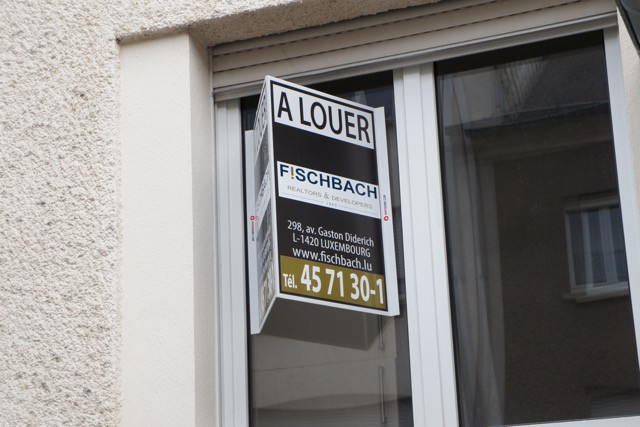According to new figures published by the Housing Observatory (Observatoire de l’Habitat), advertised monthly rents rose annually by 3% from 2008 to 2017. The increase was slightly higher in the capital, at 3.2%, largely because it is a “main centre for jobs and services,” the report author writes. But, the capital didn’t record the highest increases.
According to the report, annual rent increases in large urban communes rose between 2.5% and 3.8% per year over the same period.
In 2017, the average monthly advertised rent was €20 a square metre in Luxembourg City, compared to €16-€18 a square metre in Esch-sur-Alzette, Luxembourg’s second-biggest town.
It should be noted that these rates refer only to newly advertised rental apartments (excluding charges) and not the stock of flats already being rented out.
Sale prices march on
Rent increases were still less marked than the sale prices. Here, the housing cost monitoring body recorded a 4% year on year increase for existing apartments and a 4.7% increase for newbuilds.
This translates into a rate of €3,579 per square metre for an existing flat in 2008 to €5,103 per square metre in 2017. While someone buying a flat under construction in 2008 would have paid on average €4,204 per square metre and €6,351 per square metre in 2017.
In both instances, the spiralling costs are driven by a high demand for housing from a population explosion driven by mass migration, coupled with a shortage of housing stock.
House-sharing & overcrowding
For people at the lower end of the payscale seeking housing in Luxembourg, such as interns and company trainees, they are forced to seek low-cost alternatives such as co-housing. In recent years a number of co-housing services have been established such as appartager.lu, colocation-luxembourg.lu and furnished.lu.
The financial pressures have, meanwhile, sustain a trend in overcrowded accommodation in the country. The observatory found one in five rented homes (20.2%) were overcrowded in 2016. In 2004, the proportion was 22.6%.
